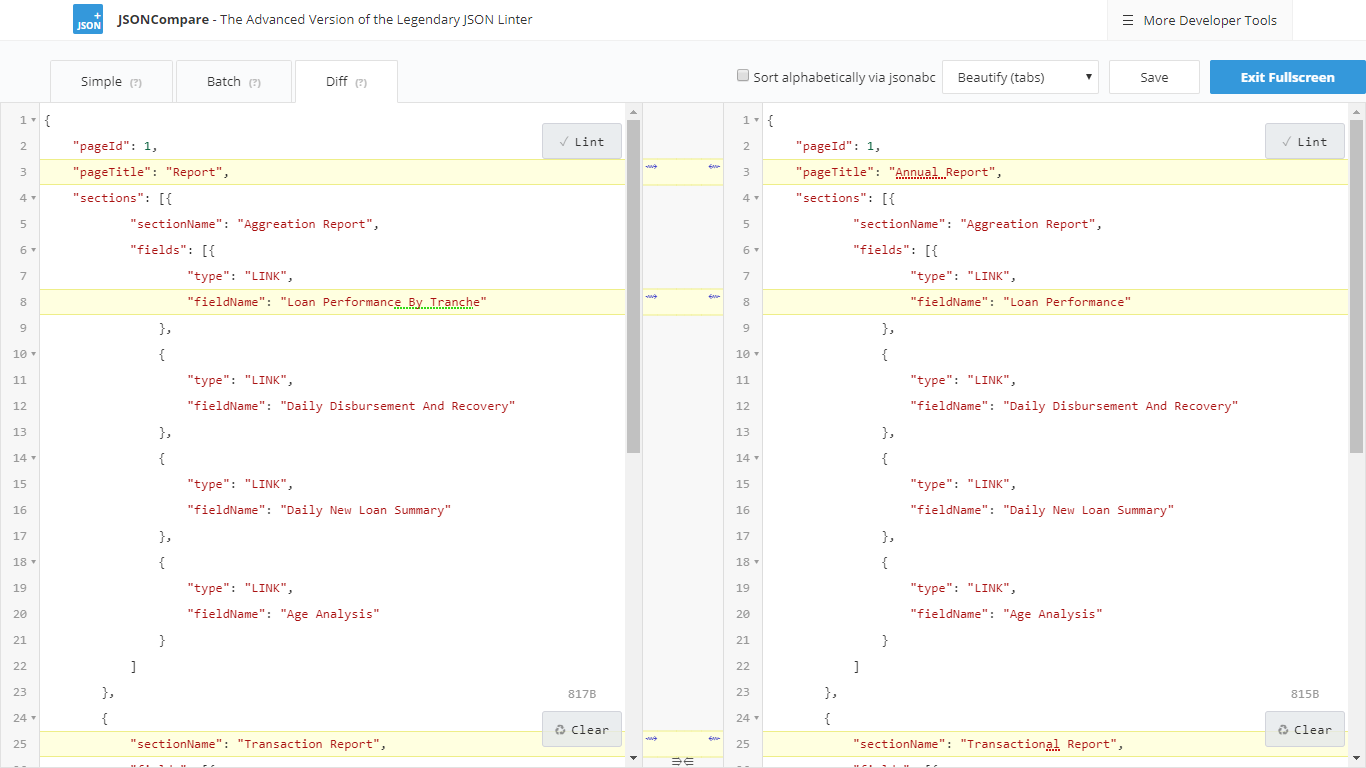


This makes it difficult to read the contents of the JSON data. JSON data is often returned from APIs in a compact form without any spaces. It is created for developers to help them with debugging. The powerful, feature rich, and user friendly JSON editor gives you a native editing experience. Stack frame information (where available) from the bottom of the stack in the current thread, up to and including the stack frame of the logging call which resulted in the creation of this is the #1 online tool to format, parse, view, validate, edit, and beautify JSON data in real time. Time in milliseconds when the LogRecord was created, relative to the time the logging module was loaded. Merged with args to produce message, or an arbitrary object (see Using arbitrary objects as messages).įull pathname of the source file where the logging call was issued (if available). The format string passed in the original logging call. Millisecond portion of the time when the LogRecord was created. This is set when Formatter.format() is invoked. The logged message, computed as msg % args. Source line number where the logging call was issued (if available). Numeric logging level for the message (DEBUG, INFO, WARNING, ERROR, CRITICAL). Text logging level for the message ('DEBUG', 'INFO', 'WARNING', 'ERROR', 'CRITICAL'). Name of function containing the logging call. Time when the LogRecord was created (as returned by time.time()).Įxception tuple (à la sys.exc_info) or, if no exception has occurred, None. By default this is of the form ‘ 16:49:45,896’ (the numbers after the comma are millisecond portion of the time). Human-readable time when the LogRecord was created. The tuple of arguments merged into msg to produce message, or a dict whose values are used for the merge (when there is only one argument, and it is a dictionary). You shouldn’t need to format this yourself. info ( 'record custom attrs' ) LogRecord Attributes INFO ) formatter = JsonFormatter ( RECORD_CUSTOM_FORMAT, record_custom_attrs = RECORD_CUSTOM_ATTRS, default = DEFAULT_SOLUTION, cls = CLS_SOLUTION ) sh = logging. JSONEncoder ): def default ( self, o ): if isinstance ( o, datetime. Initial root logger like logging.basicConfig import logging from jsonformatter import basicConfig # default keyword parameter `format`: """ RECORD_CUSTOM_FORMAT = OrderedDict () # use `json.dumps` optional parameter `default` def DEFAULT_SOLUTION ( o ): if not isinstance ( o, ( str, int, float, bool, type ( None ))): return str ( o ) else : return o # use `json.dumps` optional parameter `cls` class CLS_SOLUTION ( json.
#Jason formatter install
Use pip to install: $ pip install jsonformatterīasic Usage Case 1. Python 2.7 and python 3 are supported from version 0.2.X, if you are using a version lower than 0.2.X, Only python 3 is supported. in Flask web project, add username attribute to LogRecord for auto output username. output LogStash needed log.Įasily custom(add/replace) LogRecord attribute, e.g. Jsonformatter is a formatter for python output json log, e.g. Solve cumtom LogRecord attribute is not JSON serializable Support json.dumps all optional parameters In Flask project, add LogRecord attribute for auto output Initial root logger like logging.basicConfig


 0 kommentar(er)
0 kommentar(er)
